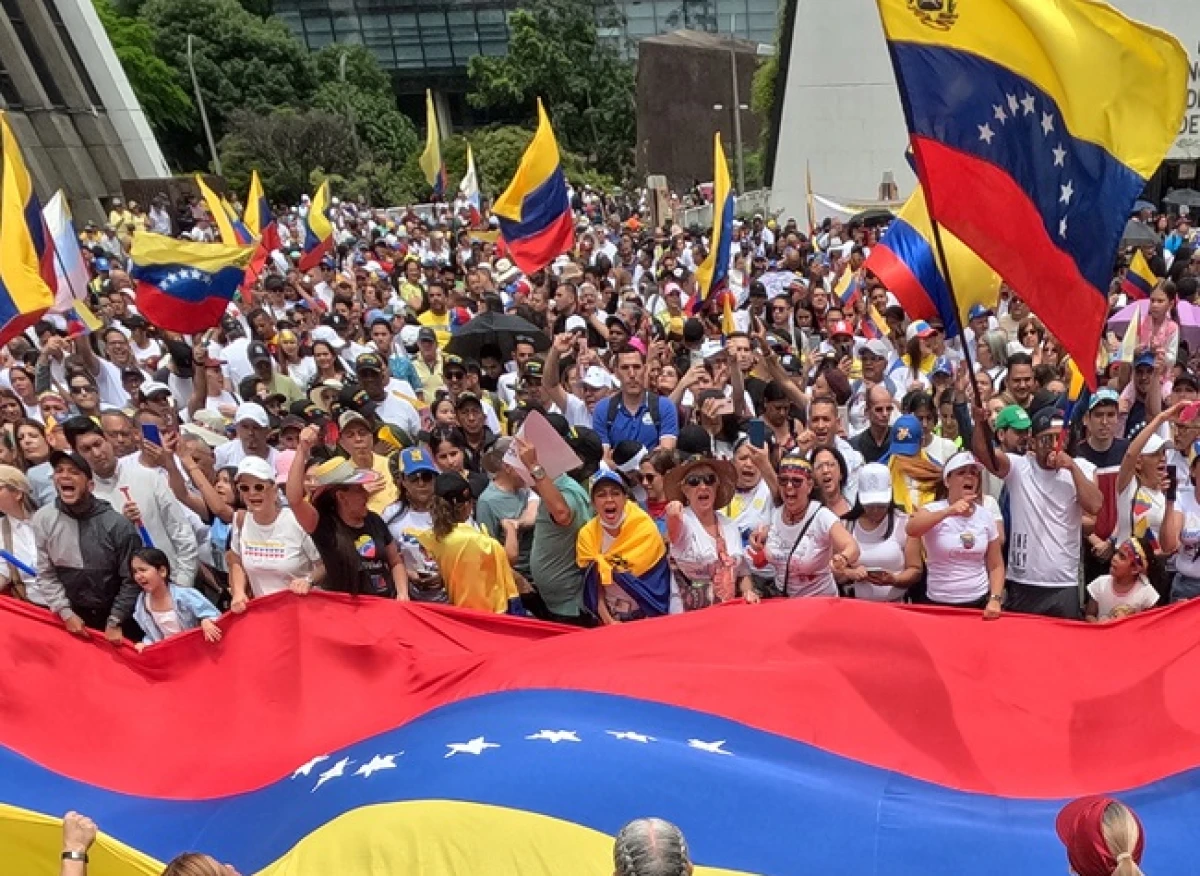
“There is no evidence” that Venezuela’s electoral system was the target of a cyber attack during the July 28 elections, Jennie Lincoln, head of the Carter Center’s electoral observation mission, told AFP, agreeing with the projections of an opposition victory.
The Carter Center was invited by the National Electoral Council (CNE) to observe the disputed elections in which President Nicolás Maduro was proclaimed re-elected for a third six-year term.
The CNE has not published detailed results and claims the delay is due to a hack, while Maduro denounces a “cyberfascist coup d’état.”
“Companies monitor and know when there are denials of service (hacks) and there was none that night,” Lincoln explained in an interview from Atlanta, United States. “The transmission of the voting data is by telephone line and satellite phone and not by computer. They have not lost data.”
Lincoln recalled that the president of the CNE, Elvis Amoroso, “said that he would publish the results table by table on the website and would give a CD to the political parties” when he announced a first bulletin.
“It’s a promise he never kept”indicated the organization’s advisor for Latin America and the Caribbean.
“Despite the playing field being very uneven, the Venezuelan people went to vote,” he continued, referring to the elections.The biggest irregularity of the election day was the lack of transparency of the CNE and the flagrant disregard for its rules of the game in terms of showing the true vote of the people.”
The Carter Center, Lincoln explained, has “analyzed the numbers” available with other organizations and universities and “confirms Edmundo González Urrutia as the winner with more than 60%” of the votes.
The opposition in Venezuela published on a website copies of more than 80% of the minutes, which they claim prove the victory of González Urrutia – representing leader María Corina Machado – with 67% of the votes. The CNE gave him 43% against 52% for Maduro.
Chavismo dismisses the validity of these documents and claims that they are forged.
“It’s pure theater,” said Lincoln, who preferred not to comment on contacts with the authorities of the CNE or the government since the Carter Center estimated in a public statement that The election “did not conform to international parameters and standards of electoral integrity” and could not “be considered democratic”.
The statement was published when the observation mission was already outside Venezuela.
“Skeptic”
Leftist Maduro, in power since 2013, asked the Supreme Court of Justice (TSJ) to “certify” the election and said he was willing to hand over 100% of the records if requested.
“The government has had 11, 12 days… a very ample time to show the real data of the records they received on election night,” Lincoln said.
The legal process is considered inappropriate by experts and the opposition, who also distrust the TSJ and the CNE because they consider that they work for Chavismo. Amoroso maintains that he submitted the voting records to the court.
The elections in Venezuela have been questioned by the United States, the European Union and several Latin American countries.
Colombia, Brazil and Mexico, which are pushing for a coexistence agreement between the parties, have suggested an “impartial verification of the results.”
Lincoln believes it is premature to comment on the Carter Center’s willingness to participate in an audit of this level.I am incredulous, skeptical about what an international verification team could do that the witnesses, who produced the true minutes of the night, have not done.“, he added.
Source: https://www.noticiascaracol.com/mundo/centro-carter-dice-que-no-hay-evidencia-de-que-elecciones-en-venezuela-fueran-hackeadas-cb20


